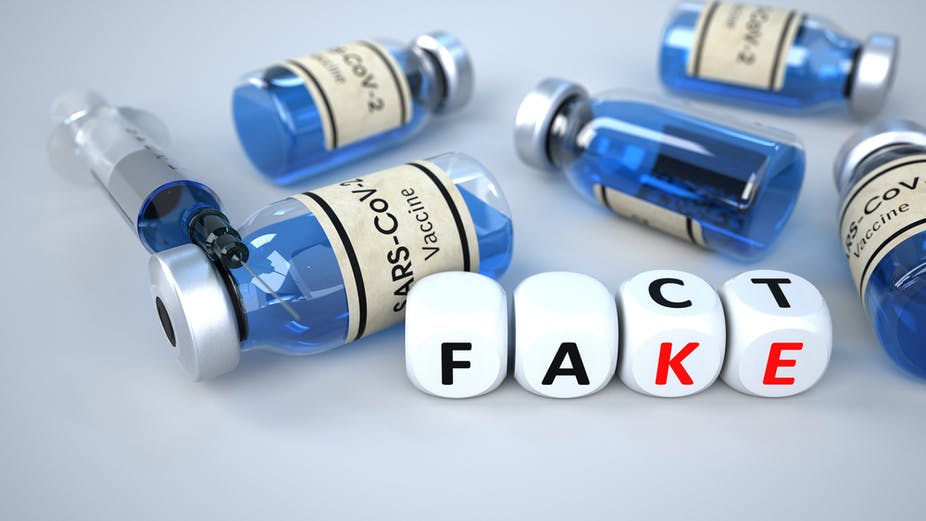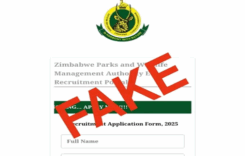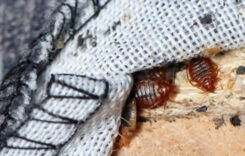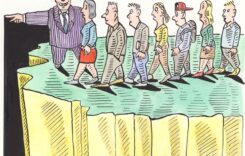The manufacture and distribution of COVID-19 vaccines have inspired many conspiracy theories against vaccines around the world.
Vaccines are not new. In fact, the WHO estimates that at least 10 million deaths were prevented between 2010 and 2015 thanks to vaccinations delivered around the world.
In this report, ZimFact busts some of the most common myths and misinformation around vaccines that have been popular on social media. Our report is compiled using information from credible sources, such as the World Health Organisation (WHO), Zimbabwe’s Ministry of Health and Child Care, the Centres for Disease Control (CDC) in the USA, and the Africa CDC.
Myth: The COVID-19 vaccine is experimental, it was developed too quickly. We are being used for experiments
Fact: The global emergency resulted in pharmaceutical companies and governments investing significantly into developing vaccines. However, this doesn’t mean that safety steps were skipped. Vaccines were still put through tests. They are tested on tens of thousands of people before they can be used widely.
According to the CDC, a manufacturer is authorised only after following at least half of the study participants for at least two months after completing the vaccination series. The vaccine must be proven safe and effective in that population.
When there is a serious public health emergency, such as coronavirus, the WHO and health authorities worldwide give what is called Emergency Use Authorisation (EUA). Under the EUA, a medicine can be used to treat people during an emergency, if it has been deemed to be safe.
This is not new. It has been successfully done during previous outbreaks, such as Ebola.
In addition, scientists were not starting from scratch. Although SARS-CoV-2 – the new coronavirus – was new, scientists have already been studying other coronaviruses for many years.
Technology has also advanced, allowing for quicker development.
Myth: The COVID-19 vaccine includes a microchip to monitor the masses
Fact: There is no microchip in the vaccine.
Conspiracy theories around the microchip largely focus on Bill Gates, the billionaire philanthropist who is a target of the anti-vaccination lobby.
Gates’ comments, during the COVID-19 pandemic’s early days, that people and businesses might need to have digital certificates “to show who has recovered or been tested recently or, when we have a vaccine, who has received it,” have been manipulated to feed the false narrative.
READ: FACT CHECK – Makandiwa, Bill Gates, vaccines and microchips
Gates’ remarks have been twisted and packaged into several social media posts and videos with a common theme – “Bill Gates wants to use a mass vaccination campaign against COVID-19 to implant microchips in people that would be used to track people with a digital ID.”
This is simply not true.
Firstly, no microchip can fit in a vaccine needle. Secondly, if anyone wanted to track people, they wouldn’t need to inject a microchip into people. They can already do that using your smartphone.
Myth: COVID-19 vaccines will alter my DNA
Fact: Among the first COVID-19 vaccines to reach the market are messenger RNA (mRNA) vaccines. According to the CDC, mRNA vaccines work by instructing cells in the body how to make a protein that triggers an immune response. Injecting mRNA into your body will not interact or do anything to the DNA of your cells. Human cells break down and get rid of the mRNA soon after they have finished using the instructions.
In fact, the mRNA will not even reach the cell’s nucleus, which is where our DNA is housed.
Myth: Vaccines are fake because you still get infected after vaccination
Fact: Vaccines are effective in reducing your chances of getting seriously ill or dying from being infected by COVID-19. If you are vaccinated, you are less likely to die or to be admitted to hospital than someone who is not vaccinated.
Myth: People who have had COVID-19 do not need the vaccine
Fact: Even if you have tested positive for SARS-CoV-2 in the past, you should be vaccinated.
According to the CDC: “Due to the severe health risks associated with COVID-19 and the fact that reinfection with COVID-19 is possible, [a] vaccine should be offered to you regardless of whether you already had [a SARS-CoV-2] infection.”
Myth: High COVID-19 recovery rate makes vaccination unnecessary
Fact: Most people who get COVID-19 do recover, but many develop severe symptoms and die, so vaccination protects those who might suffer the coronavirus’ fatal impact.
More than 1,300 people have died in Zimbabwe, and over 2,3 million globally. Experts believe many who have recovered from the disease will suffer long-term health problems.
So, even if contracting COVID-19 does not make you sick, getting vaccinated will protect those around you who might suffer severe complications or even death.
Widespread vaccination protects populations, including those who are most at risk and those who can’t be vaccinated. It will be important for ending the pandemic.
Myth: COVID-19 vaccines cause infertility
Fact: COVID-19 vaccines do not cause infertility. Health experts warn that COVID-19 can in fact have serious implications on pregnant women, who typically experience changes to their immune systems that can make them more vulnerable to respiratory viruses.
According to a September 2020 report by the CDC, pregnant women with COVID-19 were found to be more likely to be hospitalized and require ICU admission than non-pregnant women.
Myth: These vaccines cause impotence
Fact: No true. You can still have children after getting the COVID-19 vaccine. Scientists say there is no evidence that vaccines cause infertility or impotence. Vaccines are designed to work with your immune system to help it to respond to viruses. They do not make you impotent. In fact, on the contrary, researchers have found that men who suffer severe COVID-19 illness may suffer from erectile dysfunction. This means that vaccines, in fact, protect you from impotence. They do not cause it.
Myth: These Chinese vaccines we have in Zimbabwe are not safe
Fact: The Sinopharm and Sinovac vaccines we use in Zimbabwe have been tested and approved for use by the WHO.
SAGE, which is the WHO’s panel of experts, assessed the vaccines and has said: “SAGE has thoroughly assessed the data on quality, safety and efficacy of the vaccine and has recommended its use for people aged 18 and above.”
The vaccines have not just been tested in the labs. They have been tested in the real world. They have been used on large populations in other countries, which gives us an idea of their efficacy.
Efficacy against hospitalisation for Sinovac in Chile was 85%, and it was 100% in Brazil, where the Gamma variant was first found. It was also 100% in Turkey. This means that the vaccine was able to prevent people from getting seriously ill in those countries.
According to the WHO, a large Phase 3 trial in many countries showed that two doses, given at an interval of 21 days, gave an efficacy of 79% against symptomatic SARS-CoV-2 infection 14 or more days after the second dose. Vaccine efficacy against hospitalisation was 79%.
UNICEF is using Sinopharm to supply up to 120 million doses globally this year.
Myth: Getting the COVID-19 vaccine means no more masks and other coronavirus precautions.
Fact: People who get vaccinated against COVID-19 still need to maintain infection prevention precautions recommended by the World Health Organisation, health experts and authorities. This means one still has to keep wearing face masks in public, maintain physical distance and hand washing. Vaccines do not stop the coronavirus from entering your body; they only prevent you from developing moderate to severe COVID-19. The length of immunity of vaccinated people is not yet known. It’s also not yet clear whether vaccination stops transmission of the coronavirus to other people.
Myth: The COVID-19 vaccine gives you COVID-19
Fact: COVID-19 vaccines cannot and will not give you COVID-19. The vaccines trigger your immune response by instructing your cells to reproduce a protein that is part of the SARS-CoV-2 coronavirus, helping your body recognize and fight the virus, if it comes along. The COVID-19 vaccine does not contain the SARS-Co-2 virus, so you cannot get COVID-19 from the vaccine. The protein that helps your immune system recognize and fight the virus does not cause any infection.
Myth: COVID-19 vaccines have deadly side effects
Fact: While the COVID-19 vaccine can have side effects, they are mostly short-term and not serious or dangerous. According to the vaccine developers, some people experience pain where they were injected; body aches; headaches or fever, lasting for a day or two. These are signs that the vaccine is working to stimulate the immune system, but if the symptoms persist beyond two days, you are advised to seek medical help.
Myth: Vaccines are designed to kill you in two years.
Fact: This rumour circulated after a false internet report claimed that French virologist Luc Montagnier said all vaccinated people will die within two years. ZimFact checked the claim. It was reported by LifeSiteNews, a Canadian website that publishes conspiracy theories and misinformation. Our check also discovered that Luc Montagnier never said that. It is fake news.
Myth: Now that we have vaccines, the pandemic will be over very soon
Fact: While the several vaccines that have been developed present a great opportunity to end the COVID-19 pandemic, experts say this might take years due to the complexity of the global vaccine rollout.
A little over 100 million COVID-19 vaccine doses had been administered worldwide by February 3, according to the Council for Foreign Relations. At the current rate, it will take years for enough of the global population to be vaccinated to a point where cases will start to fall.
Some experts believe 70% of the population will have to be vaccinated to achieve herd immunity – the point at which the disease is no longer likely to spread.
Vaccine manufacturers have limited capacity to produce in the face of huge global demand, so the vaccines are being distributed in phases.
While governments, vaccine developers, donors and other multilateral institutions work towards broad vaccine availability and distribution, the recommended measures to slow the spread of COVID-19 – wearing masks, physical distancing and washing hands – remain vital.
Do you want to use our content? Click Here












